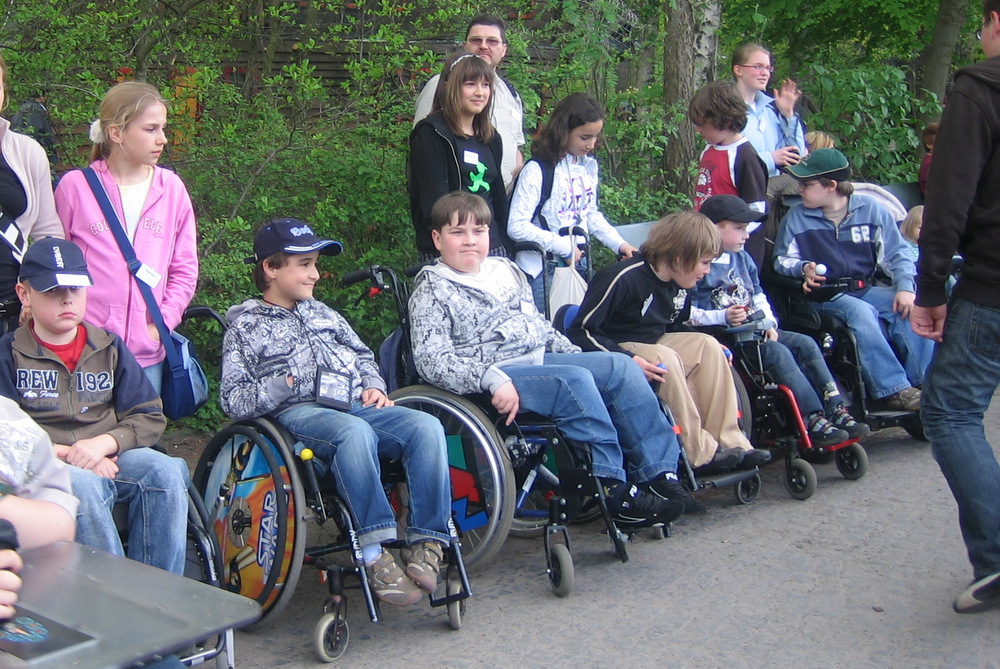Duchenne muscular dystrophy
Duchenne muscular dystrophy (DMD) is the most common childhood muscular dystrophy and is caused by defects in the DMD gene, which is responsible for making the protein dystrophin. It is an X-linked disease, which means that it affects almost exclusively boys, and is characterized by progressive muscle degeneration and weakness. Affected individuals have proximal muscle weakness, which causes a waddling gait, toe-walking, lordosis, frequent falls, and difficulty in getting up from the floor and climbing stairs. First symptoms are often evident before 3 years of age, but the disease is often not diagnosed until several years later. Its progressive nature means that most affected boys will start using a wheelchair around the age of 10, although treatments such as steroid therapy can help retain walking ability for longer.
In addition to the vulnerability of skeletal muscle, patients present with weakness of breathing muscles and may have cardiomyopathy, scoliosis and learning difficulties. DMD affects about one in 5,000 males at birth. The DMD gene is the largest known gene in humans and defects in the gene cause the absence of functional dystrophin, a component of the dystrophin-associated glycoprotein complex which anchors the extracellular matrix to the cytoskeleton via F-actin. Dystrophin accumulates at the neuromuscular junction (NMJ) and at a variety of synapses in the peripheral and central nervous systems.
Our group’s DMD-related research focuses on the pathophysiological processes leading to the cardiomyopathy symptoms and the definition of new treatment concepts via the utilization of a new established cardiac in vitro model for the disease. We are also engaged in a variety of projects towards the identification and validation of DMD biomarkers as well as in clinical research.
Hanns is a member of the Scientific Advisory Board of the German Duchenne foundation “Aktion Benni & Co” and in 2016 he was honored with the “Humanpreis” Lifetime Achievement Award for his outstanding commitment to the field of Duchenne research.
*Photo with the kind permission of Silvia Hornkamp, Aktion Benni & Co

